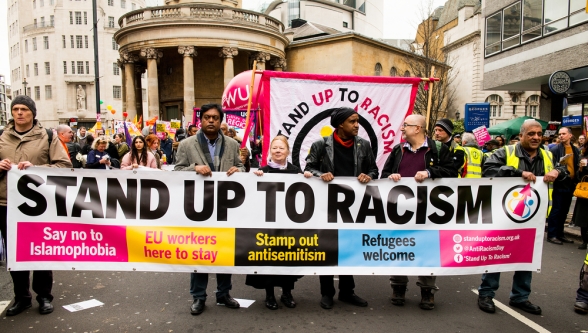It’s not uncommon for friends and family of mine to come to me with questions about mental health, support, and services. Recently, I’ve had a couple of people ask about how they can support someone with depression, anxiety, or another mental illness. Specifically, what do you do when you have a friend or family member who is really struggling and doesn’t know what to do. I hope to put together some ideas for folks who themselves are in the spiraling downwards stage of depression and link that here, so that you can pass it along if you’re worried about a friend, but in the meantime, how do you encourage someone to get help and support them in making healthy decisions when they can barely get out of bed?
Before I begin, these are suggestions. They are based on my experience of depression and what I found helpful. Everyone who deals with mental illness is different. If possible, ask your friend what would be helpful for them, and always check in to see if what you’re doing works for them. This one’s going to be a long one because I want to throw out a bunch of options for people to work with. You don’t have to try all of these things, but maybe try one a week.
So here are a few things you can do to support someone who’s in a nastybad place.
- Be Honest
One of the things that was very frustrating to me about being incredibly sick was the way that people would dance around the topic. Very few people said to me straight to my face “You have an eating disorder. I’m worried about you. I want you to be healthy. What can I do?” It’s refreshing when someone says what they mean. It doesn’t have to sound like an after school special either. Use the language you normally would use, whether that’s “Hey I see that the jerkbrains have you down right now,” or “You seem really unhappy lately.” Whatever you do, don’t try to manipulate the person into health or sneak your support in without making sure they want it. Even if they are sick, they’re an adult, and they deserve the loudest voice in their treatment.
2. Be Proactive
It’s very common for supportive family and friends to ask “how can I help?” This comes from a very understandable place. You want to be helpful, you’re not sure what they want or what you can do, so you ask. Unfortunately, one of the things that is most overwhelming about being incredibly depressed/anxious is that you often have NO idea what will help. So instead of asking a really wide open question like that, I’d recommend making specific suggestions. Something like “Would you like me to make you food? I can make a sandwich or a salad.” “Does it feel better to talk about it or be distracted?” “I’d like to come over and see how you are today. Is that ok?” Depression is exhausting and makes every decision feel impossible. Keep the decisions as small as possible: yes or no, this or that. Don’t wait for them to give you an idea of how to help, come up with one yourself.
As a sidenote, this is a great way to help someone with things you think would be good for them. From the outside, it’s easy to look at someone who’s seriously depressed and think that they should eat better, go outside, move their body, leave the house…the list goes on and on. That can be incredibly difficult to do when you’re depressed. So instead of simply telling them that they should, help them. Offer to make them a meal, suggest you take a walk together, ask them to meet up for coffee (you could even say you’ll pick them up and carpool together to decrease the barriers they face). If you can think of something that is getting in their way that you could do for them, do it. This might sound infantilizing, but it’s just like any other acute illness. They’re spending all their energy fighting: you’re giving them a little bit of space to breathe.
3. Be Willing to Be a Normal Friend
Sometimes it’s important for you to jump in to “supporting and helping” mode. But someone who is in a crisis level of depression is still a person and still has the need for connection on a basic human level. Sometimes they want to talk about normal things or act like any other friend: they want to see a movie, they want to make a joke, they want to laugh or smile. So if they seem up for it, it can be nice to do a normal friend activity and not bring up depression for at least a little bit. If it’s possible to distract them from the overwhelming pain, that is a huge gift you can give.
4. Do the Minutiae
Most of helping someone with depression isn’t listening to them late into the night or giving them a great speech that convinces them not to hurt themselves. Most of it is actually really boring. It’s sitting with someone while they call their doctor because otherwise they won’t make an appointment. It’s checking in to see if they’ve taken their meds. It’s doing a load of laundry for them so that they don’t feel too disgusting to leave the house. If you really want to be the supportive friend, you have to truly accept that not only are you seeing them at their most vulnerable, you have to be vulnerable too. You have to be willing to get messy and be bored and do unpleasant things. It’s worth it though.
5. Accept the Awkwardness
One of the more vulnerable things in life is letting another person see you when you are really struggling with your mental health. Imagine someone seeing you when you can’t seem to dress yourself, feed yourself, wash yourself, or do other basic tasks. It’s an experience that can be embarrassing. It’s easy to feel like a child. You are witnessing someone in this situation and they are fully aware that they’re asking for help with things that seem like second nature to you. So recognize that someone is showing you an incredibly vulnerable side of themselves. You may even want to let them know that you’re aware, and that it’s OK, that they can take as much or as little time as they need to do things, and that they can ask you for anything.
6. Validate
It’s easy to see someone who’s struggling and follow your first impulse to try to make them feel better, or tell them it will be ok. What often gets forgotten is that when you’re overwhelmed by depression and anxiety, it can seem like one half of your world isn’t real. There’s such a huge disconnect between your internal emotional experience and the behaviors you witness in the rest of the world. You can feel like you’re losing your grip on reality, or like you must be making things up. It helps a lot for someone to just say “those feelings are totally real. You are not making up how bad it is. You really are fighting a hard battle, and it seriously sucks, and I’m so sorry.”
No, it doesn’t fix anything, but it is incredibly validating to hear that other people believe you, see what you’re doing, and recognize your experience as real. It helps to bridge some of those gaps between internal experience and external reality. It can particularly help if there are negative things happening in someone’s life to point out “Hey, you are not making this up. You’ve been dealing with hard things and maybe your reaction is particularly strong, but it makes complete sense to struggle with this.”
7. Walk the walk
Take care of yourself. I know in many other places in this article I’ve recommended being willing to do anything. What I mean by that is not letting pride get in the way. However you have limits too. If possible, demonstrate healthy boundaries and good self care. Saying something like “I’d really like to help out, but I can’t do x night because it’s date night. Can I help you on y night instead?” If you’re having a chat with them, it’s good to mention things you’re doing to take care of yourself, e.g. “I saw my therapist the other day and we talked through x problem.” It helps to normalize the steps that you’re asking the other person to take, and it also helps them feel less lonely. They’re not especially broken and sick. Other people are working on the same things.
8. Be Willing to Be a Safe Place
This one might be a little bit controversial, but it’s something that I think we should talk openly about. I and many of my friends who have dealt with self harm and suicidality have an intense fear of someone calling 911 on us. Especially for people who are black, autistic, trans, or another vulnerable group, interacting with the police is something to be avoided at all costs because it is dangerous. If you have a friend who has told you that they do not want to go to the ER or interact with the police, please respect that. Work with them to find other ways to keep them safe. Drive them to the ER yourself to get them stitches. Forced hospitalization is not fun for anyone, and if we can avoid it that’s great.
As a side note, one of the things that was most stressful to me when I was self harming was managing other people’s emotions about my self harm. I know that seeing someone you love injuring themselves is AWFUL. It is terrifying and it is painful. Those feelings are real. However in the moment when the person has hurt themselves is not the appropriate time to have that conversation. That’s the time when you need to be calm, ask them if they need to be cleaned up, if they need stitches or a bandage, and hold them tight. I cannot express how big of a deal it was for me when I finally met someone who reacted to my self harm in a calm manner rather than with fear and anger. There is something so validating about a person who loves you accepting that you’ve done this and still communicating that they love you. Save the fear and anger for a less charged moment.
If you have any other suggestions, feel free to drop them in comments!









